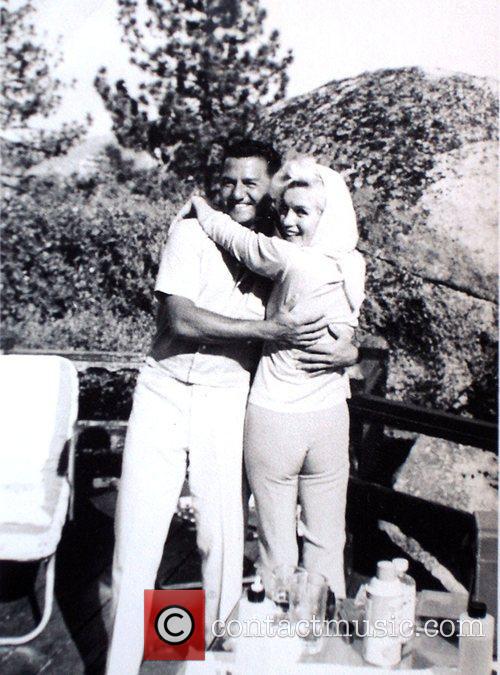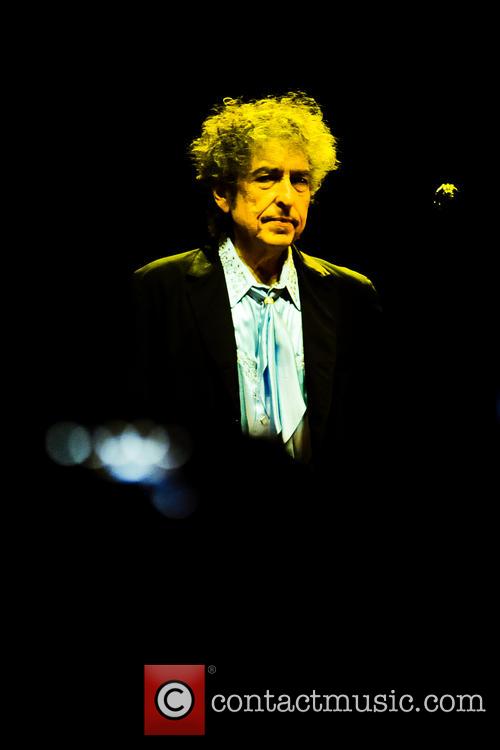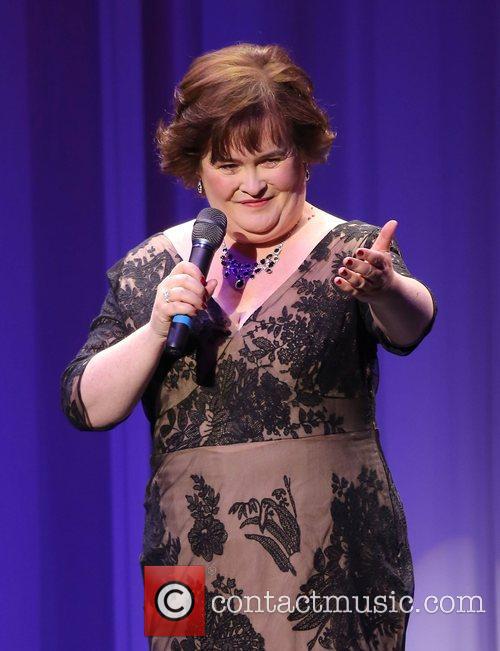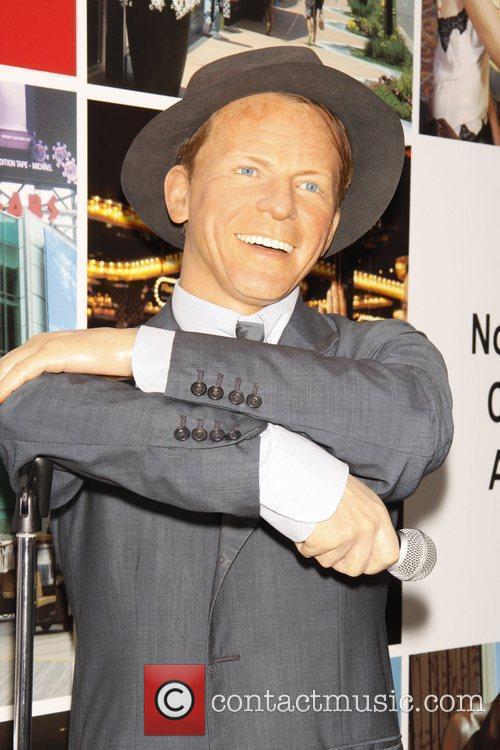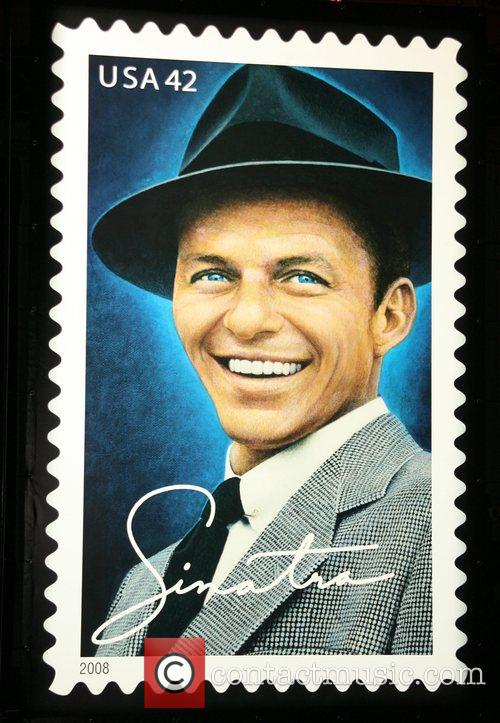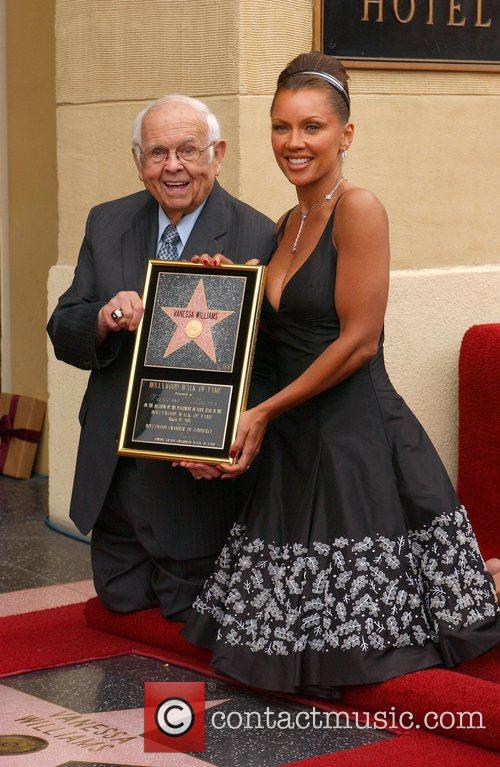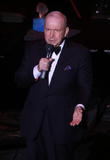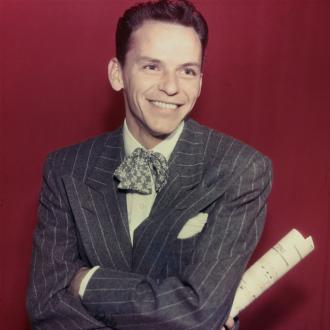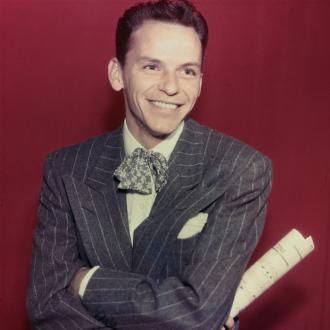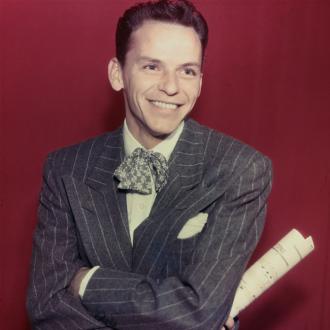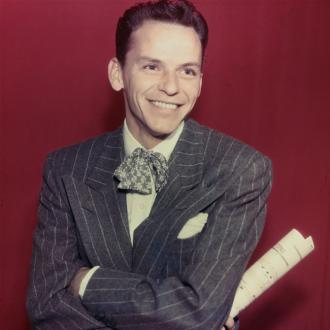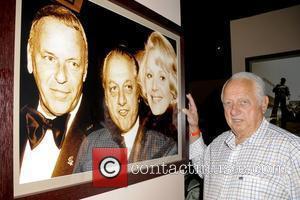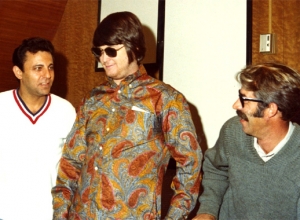
Frank Sinatra (born Francis Albert Sinatra, 12.12.1915, died 14.5.1998) Frank Sinatra was an American singer and actor, famous for being a part of the 'Rat Pack'.
Childhood: Frank Sinatra was born to Natalie Della and Anthony Sinatra, in Hoboken, New Jersey. His mother, known as Dolly, ran an illegal abortion business and was twice arrested for it. His father served with the Hoboken Fire Department.
As a teen, Sinatra worked as a delivery boy at the Jersey Observer newspaper. He also had a job as a riveter at the Tietjan and Lang shipyard. In the early 1930s, Frank Sinatra began singing in public.
Music and Movie Career: Frank Sinatra's break came in 1935, when his mother persuaded him to sing with The Three Flashes. When Sinatra joined, they became known as The Hoboken Four. They impressed Edward Bowes enough for him to let them appear on his show Major Bowes Amateur Hour.
In July 1939, Sinatra released his first record, 'From the Bottom of My Heart'. It sold less than 8,000 and is now a sought-after collectors' item. Sinatra then joined Tommy Dorsey's band, one of the most popular bands of the time. His first appearance with the band came in January 1940, at the Coronado Theater in Rockford. The contract that Sinatra signed with Dorsey allowed Dorsey one third of Sinatra's earnings for the whole of Sinatra's career, rendering their relationship a tenuous one. MCA records eventually bought Sinatra out of the contract.
Sinatra's first solo sessions without the Dorsey band were released on the Bluebird label in 1942.
Sinatra's first film appearance came in 1940 with the release of Las Vegas Nights.
During the 1942-3 musicians' recording strike, Frank Sinatra signed a deal with Columbia Records. He eventually recorded a session with Alec Wilder and seven of the tracks became hits.
In 1945, Frank Sinatra went on to co-star with Gene Kelly in Anchors Aweigh. The following year, he released his debut solo album, The Voice of Frank Sinatra. He retained his popularity for some time but by the end of 1948, Sinatra had slipped down Down Beat's annual poll of popular singers, behind Billy Eckstine, Frankie Lane and Bing Crosby. The following year, he teamed up with Gene Kelly twice more, in Take Me Out to the Ball Game and On the Town.
Frank Sinatra took a two-year break from performing. When he returned in 1950, he suffered from a hemorrhaging of his vocal cords at the Copacabana. However, the following year, he made his Las Vegas debut, at the Desert Inn.
His career enjoyed something of a rebirth in 1953 when he won an Academy Award for Best Supporting Actor in From Here To Eternity. The film also starred Burt Lancaster, Montgomery Cliff and Deborah Kerr. Throughout the 1950s, Sinatra worked with arrangers such as Billy May, Gordon Jenkins and Nelson Riddle, on some his most popular albums, Frank Sinatra Sings For Only the Lonely, Songs For Swingin' Lovers and Come Fly With Me. Sinatra was vocally critical of rock and roll in the 1950s. He was notable for his criticism of Elvis Presley, though he would later go on to record covers of songs made famous by Elvis, as well as the Beatles, Joni Mitchell and Paul Simon.
Sinatra started the 1960s well, with the album Nice 'n' Easy topping the US album charts. He formed his own label, Reprise, and released their first album Ring-A-Ding-Ding. He also starred in Ocean's 11, the definitive movie moment for The Rat Pack (in this case: Dean Martin, Sammy Davis Jr., Joey Bishop, Peter Lawford and Frank Sinatra). The film was later re-made with George Clooney, Brad Pitt and Matt Damon.
Sinatra also starred in The Manchurian Candidate, along with Laurence Harvey and Janet Leigh. Quincy Jones (who later worked extensively with Michael Jackson) arranged the album It Might As Well Be Swing for Sinatra.
In 1967, 'Something Stupid', a duet between Frank Sinatra and his daughter Nancy Sinatra went to the top of the US Billboard charts. Later that year, he collaborated on Francis A. & Edward K. with Duke Ellington. Paul Anka wrote the song 'My Way' with Sinatra in mind and it became one of his signature tunes.
Despite having announced his retirement in 1971, Sinatra came out of retirement in 1973 to record Ol' Blue Eyes Is Back, an album and accompanying TV special.
1980 saw Sinatra release Trilogy: Past Present Future, a highly ambitious triple album, which was nominated for six Grammy awards. This was followed by She Shot Me Down: another success for the singer.
Sinatra's 75th birthday came in 1990. He celebrated with a national tour and performed with Ella Fitzgerald for the final time when he was awarded the 'Ella Award'. At the 1994 Grammy Awards, Bono of U2 presented him with his Legend Award.
To mark Sinatra's 80th birthday, the Empire State Building glowed blue.
Personal Life: Frank Sinatra married Nancy Barbato in 1939. They divorced in 1951. They had three children together, Nancy, Frank Jr. and Tina.
He was married to Ava Gardner between 1951 and 1957. He then married Mia Farrow in 1966. They split two years later. His final wife was Barbara Marx, to whom he was still married at the time of his death.
Death: Frank Sinatra died of a heart attack at the Cedars-Sinai Medical Center. Mourners at his funeral included Liza Minnelli, Tony Curtis, Faye Dunaway and Jack Nicholson.
Biography by Contactmusic.com
